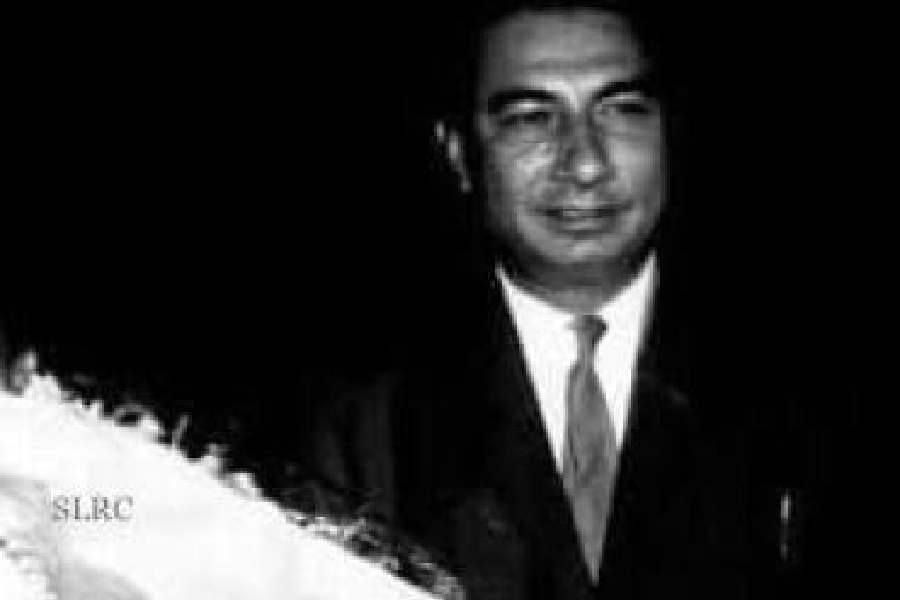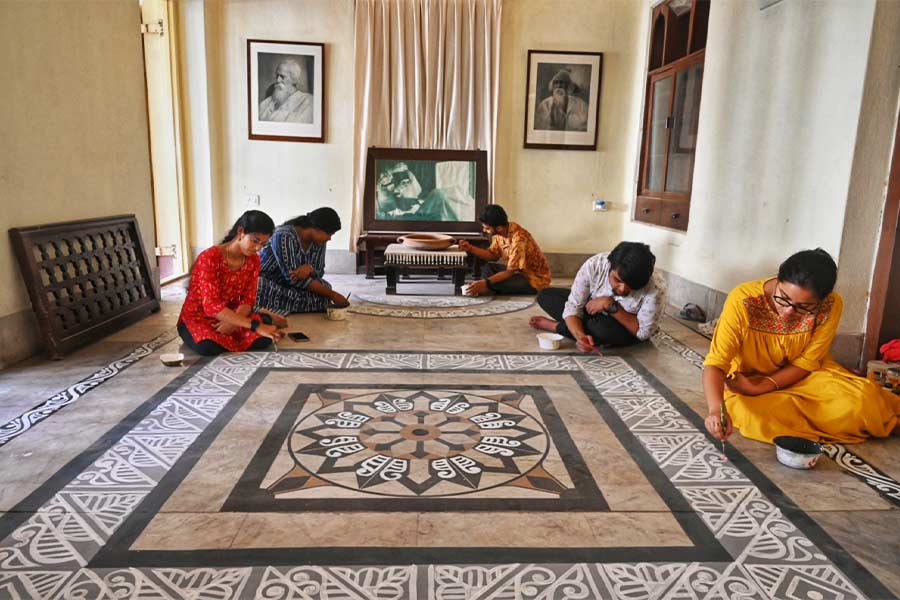A poet who championed the cause of the working class also wrote immortal ballads of love and longing.
A three-day festival in Kolkata, which starts on Friday, will celebrate Sahir Ludhianvi.
Sahir ki Sahiri, at Dhano Dhanyo Auditorium in Alipore, will commemorate the centenary of Sahir Ludhianvi (1921-1980), one of the great Urdu poets of the 20th century and a prolific lyricist.
Born in undivided India’s Ludhiana as Abdul Hayee, Sahir provided verses to 122 movies and composed over 500 songs.
Pyaasa (1957), Naya Daur (1957), Phir Subah Hogi (1958), Hum Dono (1961), Waqt (1965) and Kabhie Kabhie (1975) are some of the films he composed for.
The celebration of togetherness has rarely been more intoxicating as it was in “Abhi na jao chhod kar, ke dil abhi bhara nahi” from Hum Dono.
Similarly, it is hard to look for a protest song more poignant than “Duniya agar mil bhi jaaye to kya hain” from Pyaasa.
The same man wrote “Tu Hindu banega na Musalman banega; insaan ki aulaad hai insaan banega,” in Dhool Ka Phool (1959), considered his ode to secularism.
The song was played or sung at almost every demonstration in Kolkata against the three-pronged citizenship thrust of the Narendra Modi regime between December 2019 and March 2020.
Ludhianvi’s life and times and his body of work were inseparable from his politics, said people who have studied him.
“Sahir Ludhianvi can be described as an organic revolutionary poet for women and the working masses. He inspired them to voice their sufferings. As long as oppression and authoritarianism exist, Sahir’s work will remain relevant,” said Salman Abid, a retired professor of Urdu based in Hyderabad and the founder of Sahir Ludhianvi Genius Global Research Council, a community that aims to spread Ludhianvi’s message and philosophy among future generations.
“Sahir is also remembered as greatest critique for the institution of religion, which he saw as the most lethal tool of exploitation at the disposal of the ruling class,” said Abid, who is coming to Kolkata to attend the three-day festival.
The West Bengal Urdu Academy, a parastatal organisation under the minority affairs and madrasah education department of the state government, is organisining the programme.
Mayor Firhad Hakim is scheduled to inaugurate the event. Bratya Basu, education minister and playwright, will be the guest of honour. The ceremony will be presided over by Mohammad Nadimul Haque, Trinamul MP and and vice-chairman of Urdu Academy.
“We want to introduce Sahir’s poetry to the next generation. The country is at a juncture where we need to celebrate personalities with secular credentials,” Haque said.
A host of programmes will be part of the festival. A short documentary on Ludhianvi will be screened after the inauguration ceremony. Plays, musical performances, a mushaira (meeting of poets) and panel discussions are lined up.
Ludhianvi moved to Bombay in 1948. His meeting with composer S.D. Burman would be the beginning of an enduring partnership.
Towards the end of his career, he wrote for Kabhi Kabhi: “Main pal do pal ka shayar hoon… (I am a poet for a moment or two)”. This pretty much summed up his approach to life, more than one admirer said.
“With wars, religious polarisation and inequalities ravaging the world, it is time to fall back on Sahir even more than before,” said Dabir Ahmed, who heads the Urdu department at Maulana Azad College, also a part of the festival.






